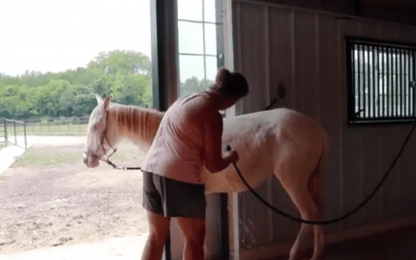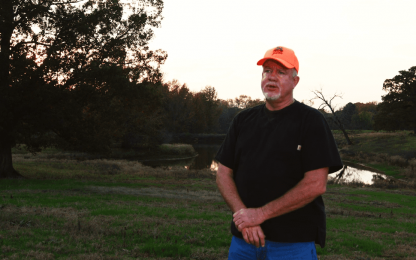A few years ago, Rose Lewis gave her husband, Jay, a birthday gift that has kept on giving: a mushroom growing kit.
The kit sparked such an interest that the couple now grow mushrooms commercially, having moved from South Florida to South Carolina to do so.
A perfect place to grow mushrooms
They made the move, they say, after discovering through research that South Carolina was a prime location for what they knew would be a niche product, with pride in South Carolina-grown products demonstrated through state-wide programs such as Certified South Carolina Fresh on the Menu.
Their oyster mushrooms are grown on a base of agricultural waste in a modest, energy efficient building kept cool to help the mushrooms grow. “We grow our delicious mushrooms on locally sourced agricultural waste including remnants from oat and wheat harvests that would normally be disposed of,” says Jay. “We also add a blend of supplementary nutrients to ensure a healthy, stable crop.”
The couple started small, and now just a few years after they began, they raise 50 – 60 pounds of mushrooms each week, with the mushrooms producing year-round in the South Carolina climate.
Mushroom lifecycle
The oyster mushroom lifecycle is just six weeks long. Once the growing medium – the bales of agricultural waste – is inoculated with the mushroom spores, it is kept in a temperature controlled environment for two weeks. This “vegetative” stage is when the mushrooms grow, gaining size and mass. Mushrooms, though, don’t reproduce unless the conditions are right…or rather, wrong: the mushroom needs to sense a threat in order to enter the reproductive growth stage. Typically, this “fruiting” stage of development, takes three to four weeks in a separate temperature controlled environment that maintains a lower temperature.
Once the mushrooms have fruited, starting the lifecycle over again, they are harvested, packed in five pound boxes and sold primarily to a local distributor, although the Lewis’ also sell to local stores and restaurants and at local farmers markets.
Looking to the future
The success of their business has enabled Jay to become a full-time farmer, with Rose working off-farm as the branch manager at the local library. Their success has also led to a planned expansion which will add a 5,000 cubic foot, climate controlled facility that will significantly increase their harvest.



